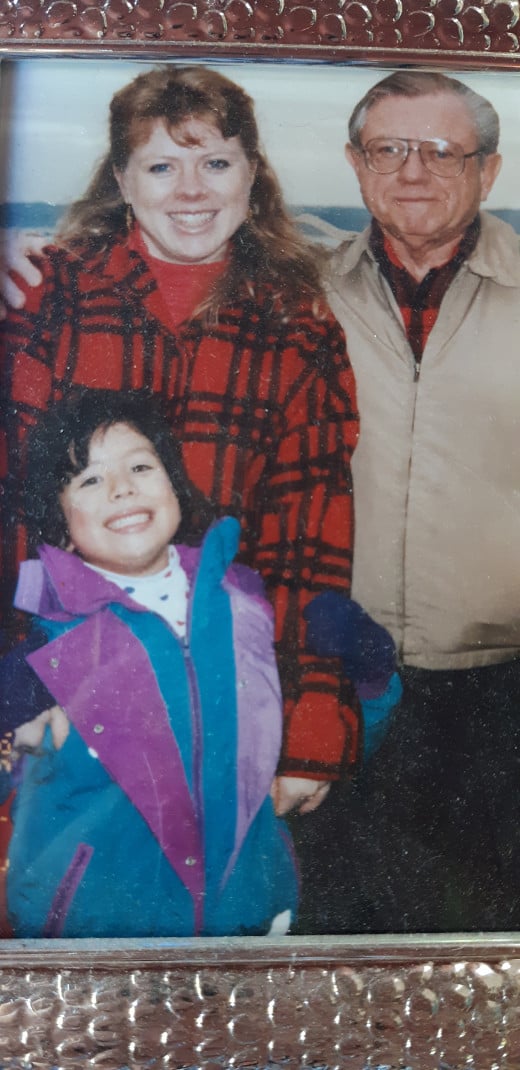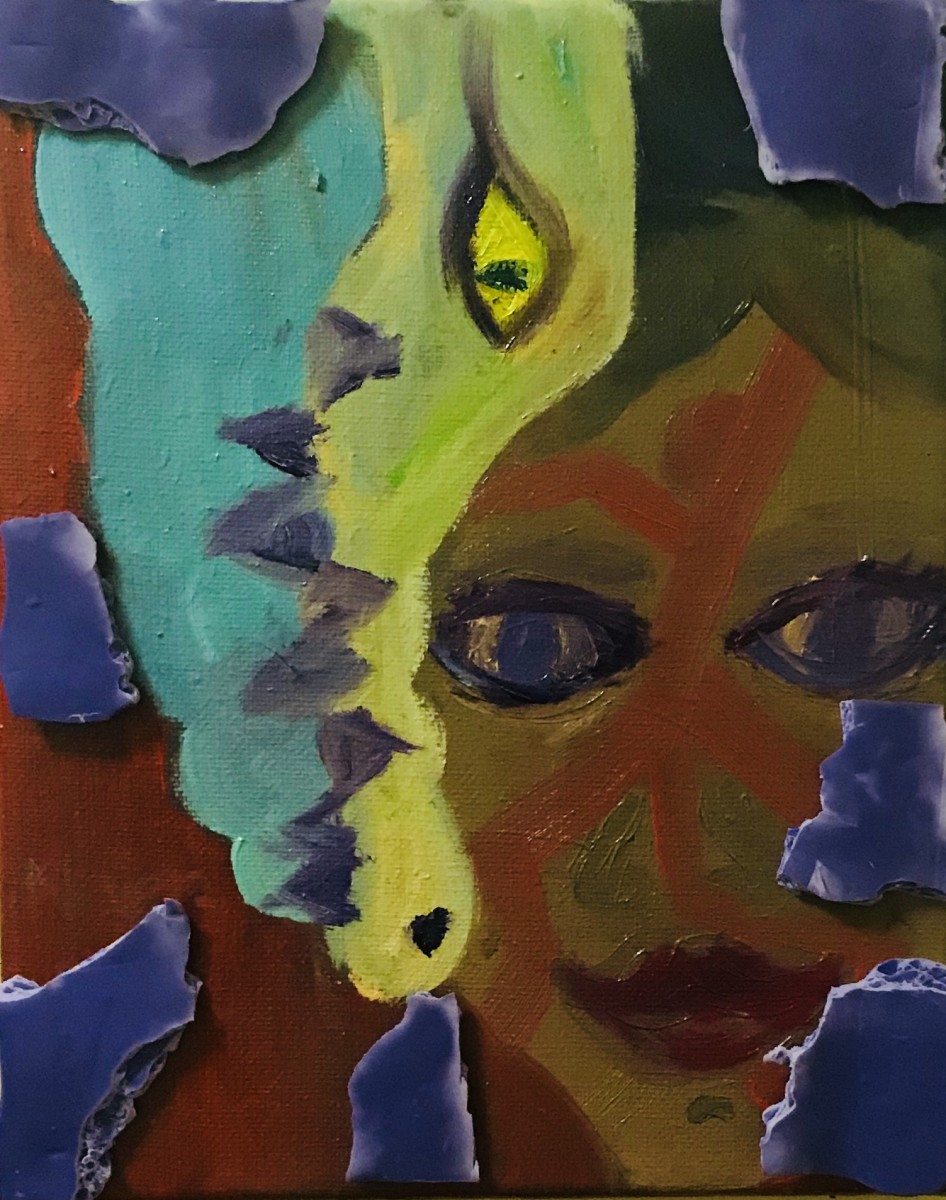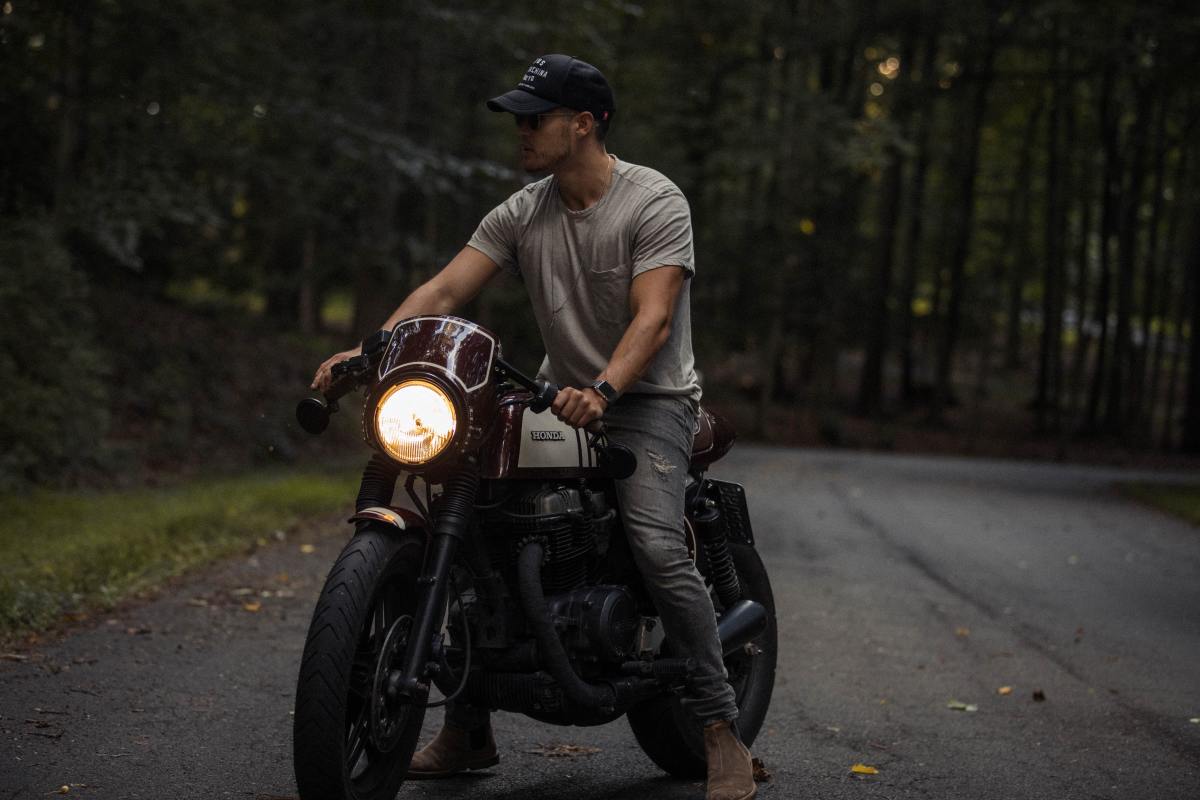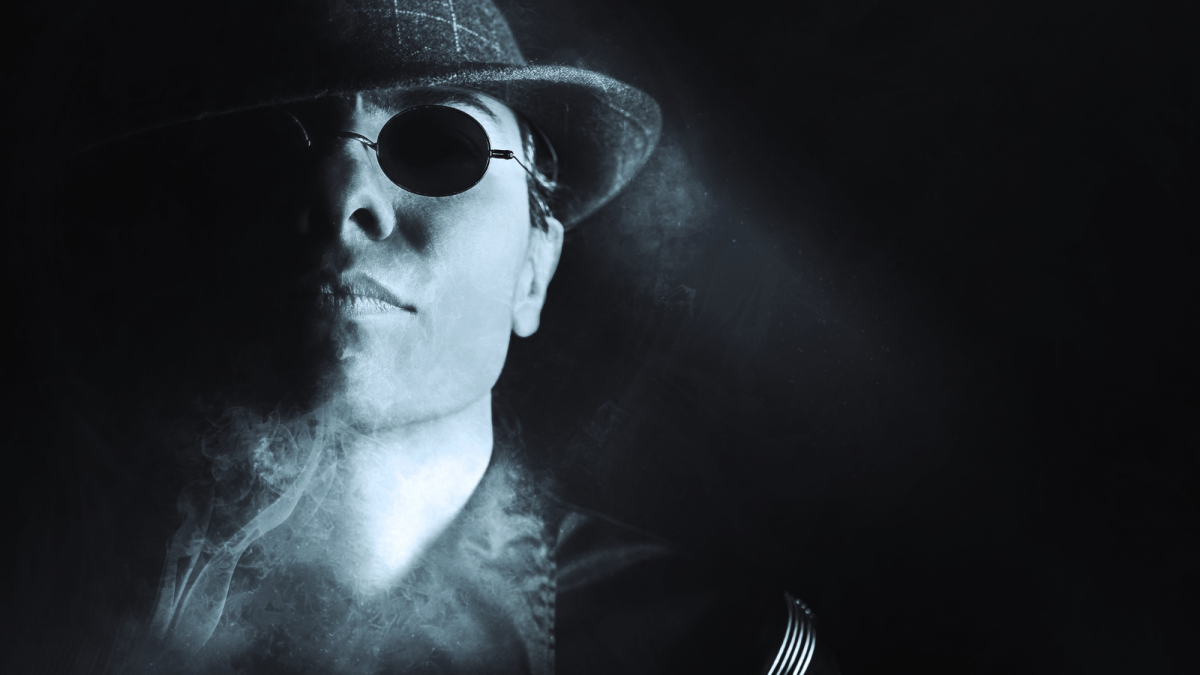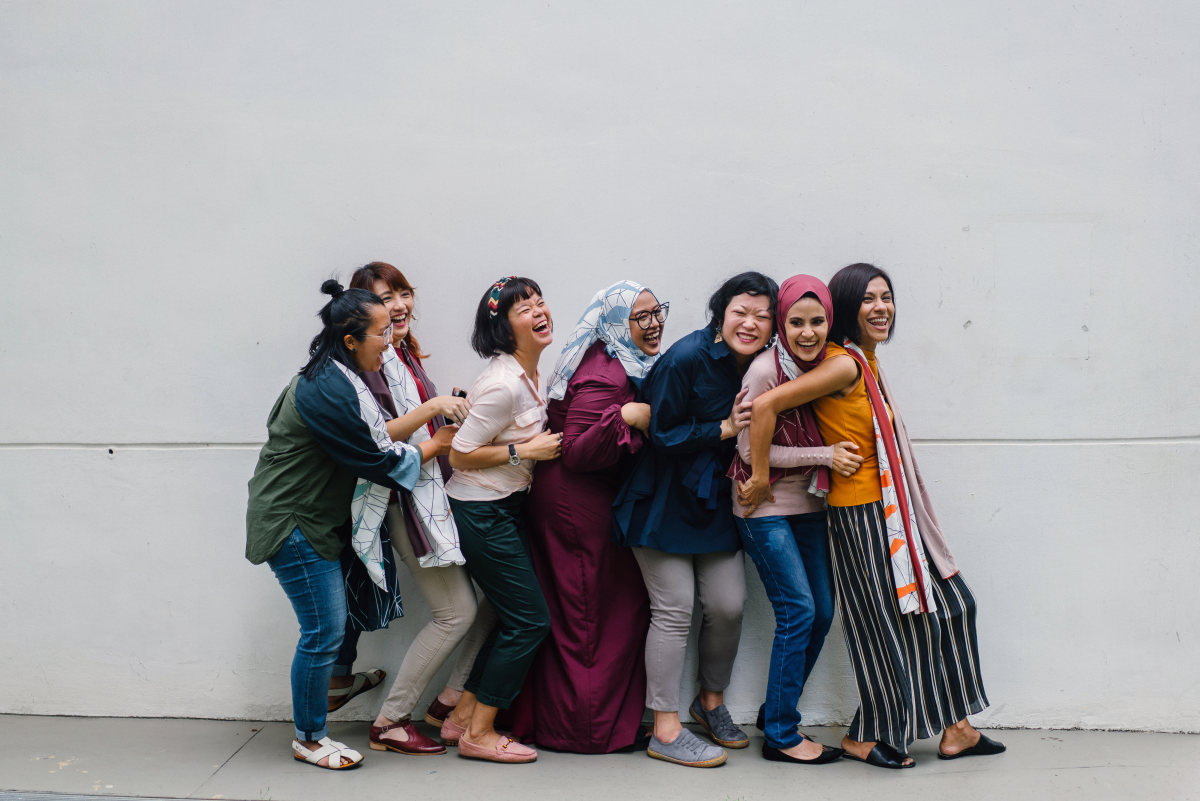Connecting in a Broken World
Sometimes the greatest connections begin as misunderstandings
At around the end of March 2020, I noticed a growing trend: chalk art. Walking my dog, I'd stumble upon pastel-hued words of encouragement, like "You are so beautiful!" "Smile," "Be Safe Everyone." Before I lost my job, the whole "be positive" movement seemed insane. How do we feel good when the world is a disaster? Also, if someone told me to smile, not in passive chalk drawings, but to my face, I'd probably scream.
The truth is that my thinking face is scary. I've seen the photos and even I find myself quivering at times. But if I were a man or identified myself as such, I'd most likely appear handsome and intellectual.
Many have pointed out my lack of smiles. My high school principal: "Why the gloomy face?" as I trudged from my parents' car to class. And a well-meaning but out-of-touch history professor another time: "Why don't you smile more." I was never sure if he was asking me to smile or saying, out loud to himself, that he would prefer to conduct a class without the miserable lady brooding in the corner. He said this to me as he passed me back papers and assignments. It became a trend. "What, no smiles today, sweetheart?" I kept quiet. Until one day, I said, "You know what, I don't feel like smiling today." He stopped in his tracks. "Oh," he said. We shared a strange stillness, each in a state of shock. His was from being talked back to by a quiet female student--the one that semi resembled the pale drenched girl crawling out of wells and television sets from The Ring, maybe. My shock was simple: I had never stood up for myself.
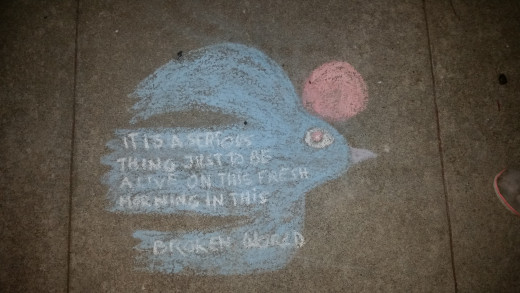
Before I lost my job, the whole "be positive" movement seemed insane. How do we feel good when the world is a disaster?
When I walk over the chalk art that says, "Smile," I feel my cheeks curl, despite myself. Someone took the time to exit their house or apartment, take a piece of chalk and write this.
Nearly a decade ago, I visited my history professor's office and told him I was homesick, maybe even seriously depressed. I hadn't told anyone this, besides my parents.
"Have a seat," my professor said. He boiled some water for tea. "You know, I love talking to students. I like getting to know people. I'm sorry I upset you." Something about sitting face to face with my professor framed him in a better light. Usually, I sat in my corner, scribbling and scowling beneath him. "My parents are going through a pretty rough divorce," I offered, surprised at myself, yet again. He leaned in, and I suddenly felt lighter.
I sipped the tea he made, and he shared some things about his own life. He was a father. He had two sons who were a couple of years older than me. I might have even mentioned not to call me "sweetheart" anymore.
I don't remember the professor's name. The title of the class and the content of his lectures have vanished from my memory. Many months after his class ended, he'd invite me to his office for what he called "tea and chats," or he'd say a friendly hello in the cafeteria, a silent wave in the library.
A lot of the chalk art recently share some more political and negative comments. Politics and confusion have replaced the feel-good quotes, the "Thank You Essential Workers!" shout outs. It rained a couple of days ago, so most of the sidewalks are empty now--blank canvases waiting for one of us to reach out and say something.
